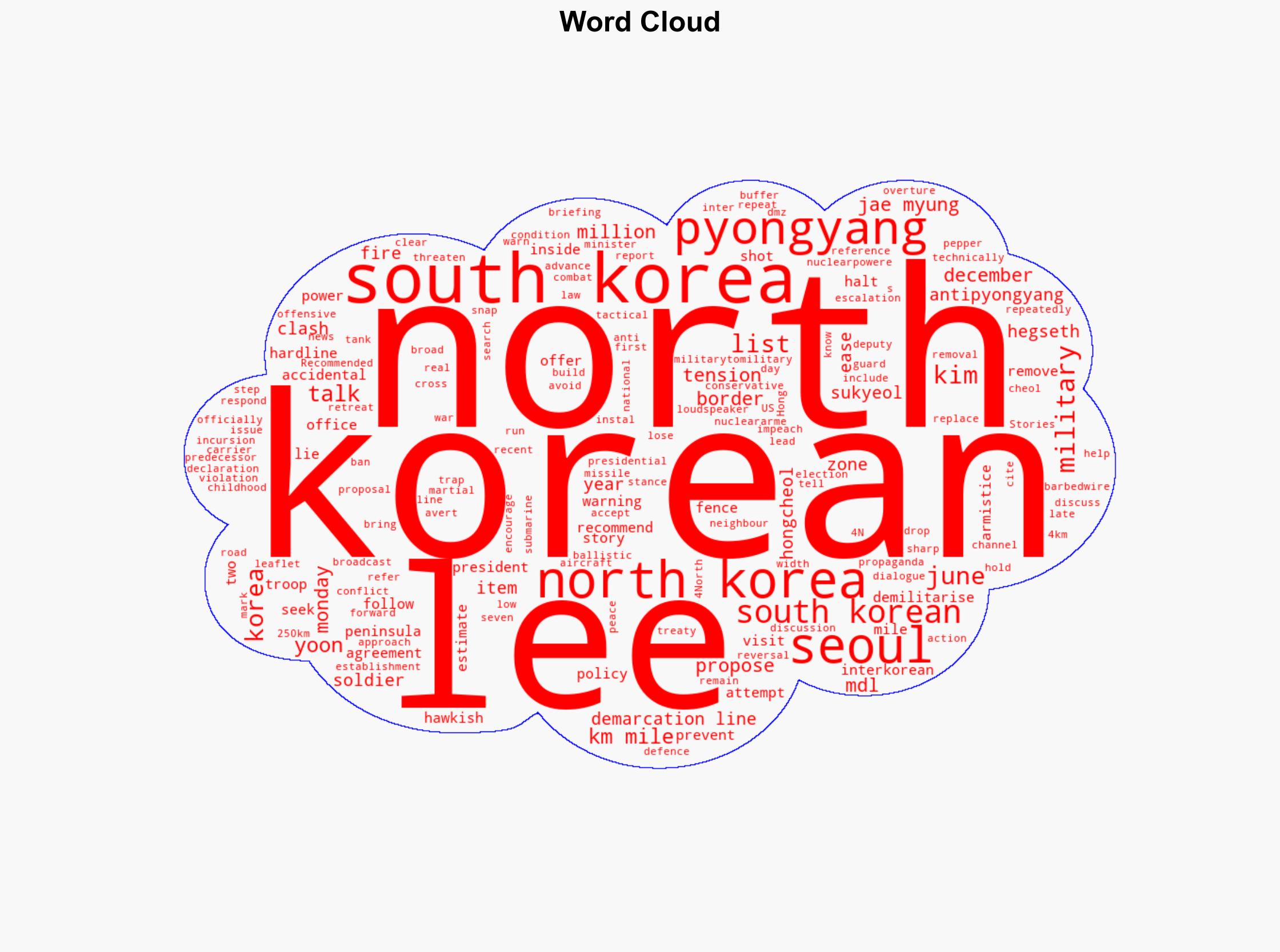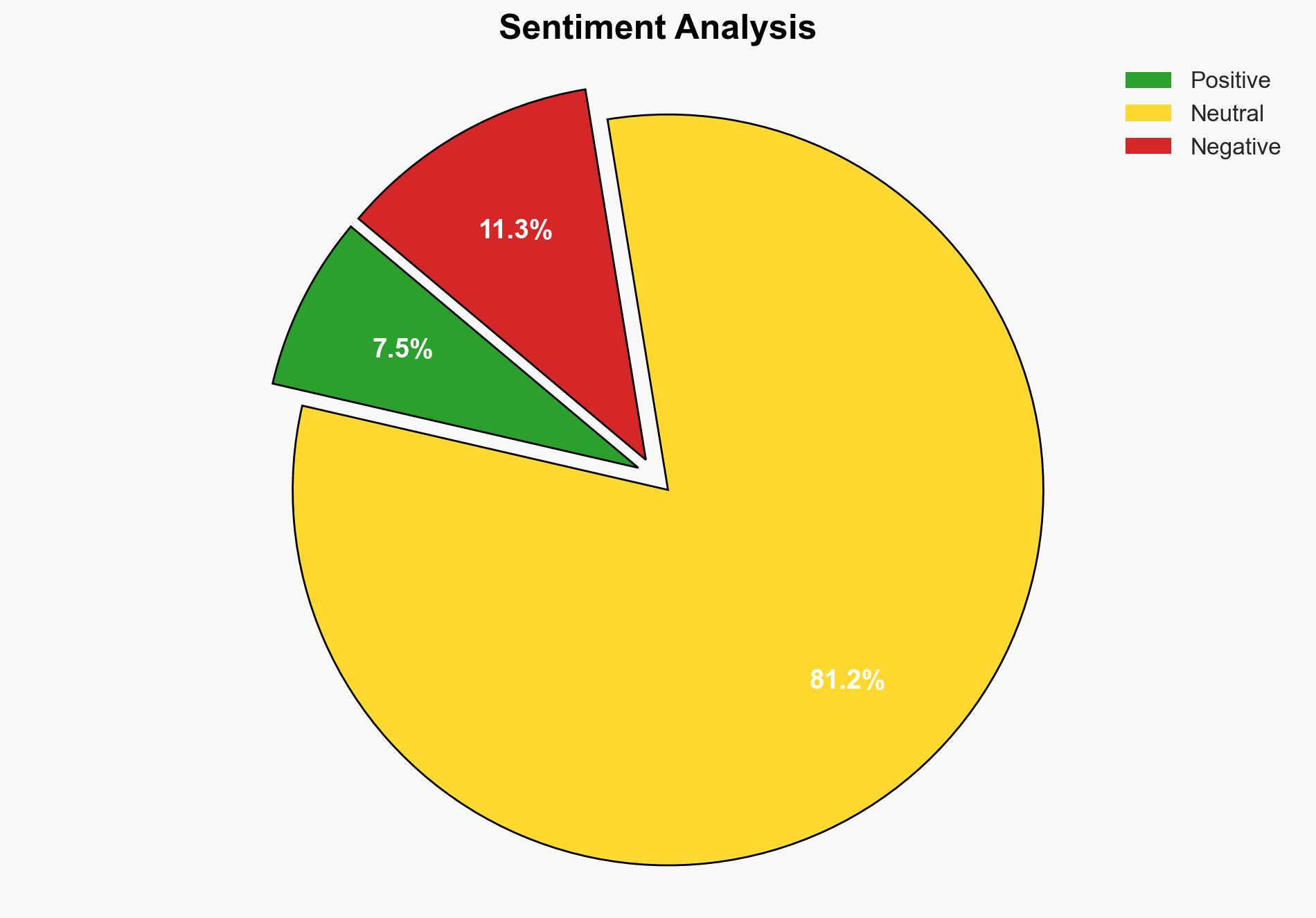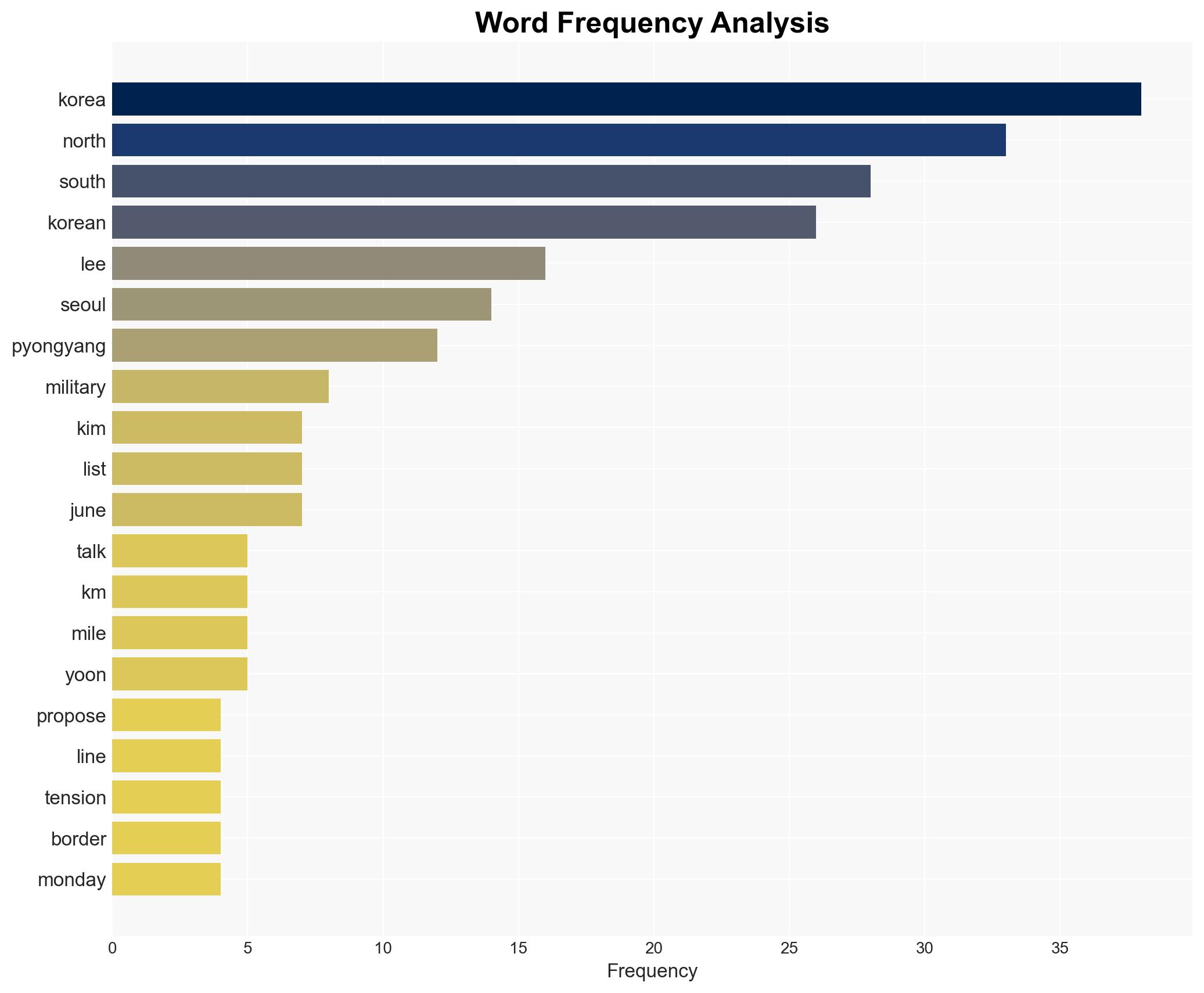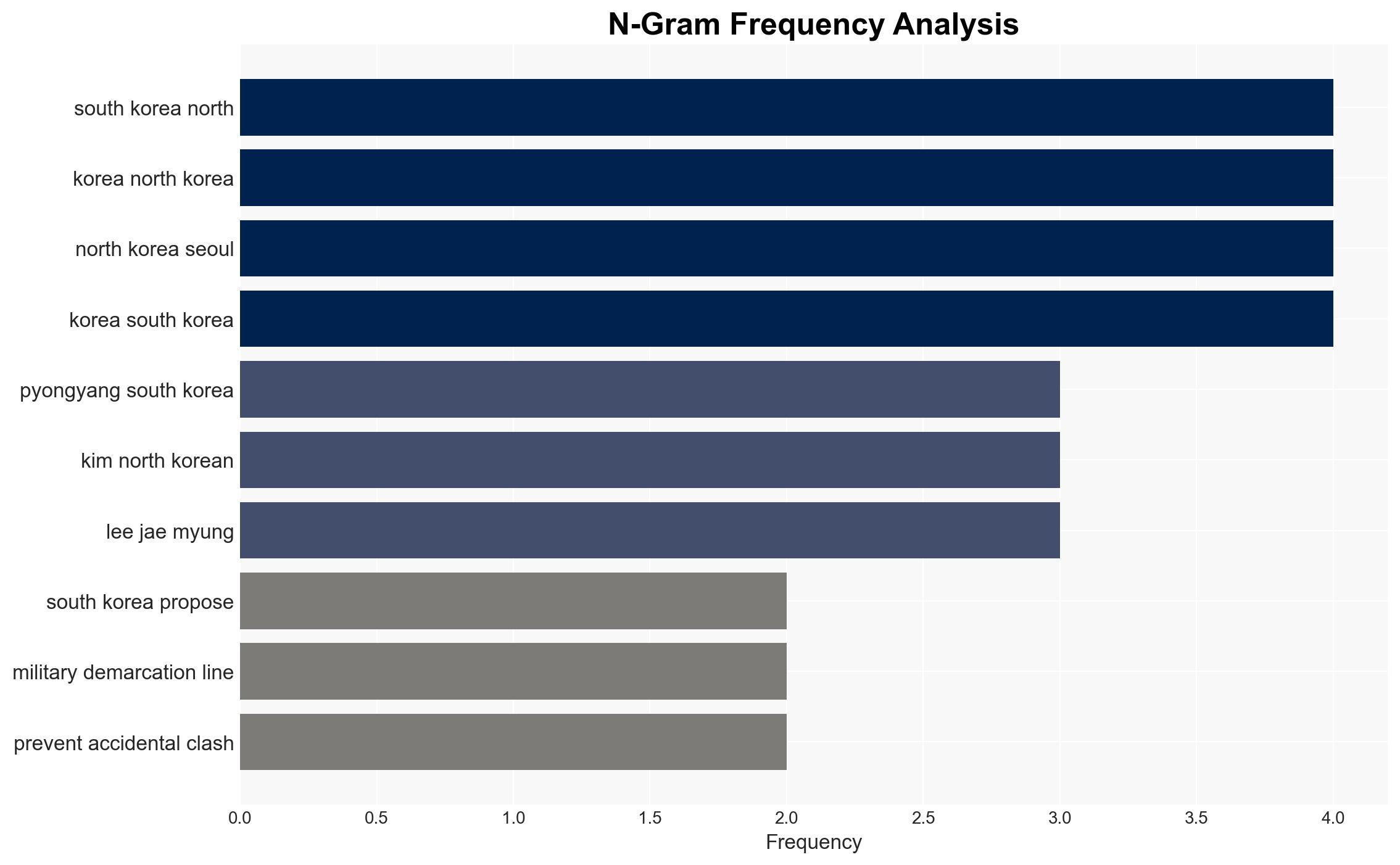South Korea proposes talks with North Korea on military demarcation line – Al Jazeera English
Published on: 2025-11-17
AI-powered OSINT brief from verified open sources. Automated NLP signal extraction with human verification. See our Methodology and Why WorldWideWatchers.
Intelligence Report: South Korea’s Proposal for Military Talks with North Korea
1. BLUF (Bottom Line Up Front)
With a moderate confidence level, it is assessed that South Korea’s proposal for military talks with North Korea is primarily aimed at reducing the risk of accidental military clashes and easing tensions along the Military Demarcation Line (MDL). The most supported hypothesis is that South Korea seeks to establish a stable communication channel to prevent escalation, given recent provocations by North Korea. Recommended actions include diplomatic engagement with regional allies and monitoring North Korea’s response for signs of genuine engagement or strategic deception.
2. Competing Hypotheses
Hypothesis 1: South Korea’s proposal is a genuine attempt to reduce military tensions and prevent accidental clashes along the MDL. This is supported by South Korea’s recent policy shifts towards engagement and de-escalation, as well as the historical context of repeated border violations by North Korea.
Hypothesis 2: South Korea’s proposal is a strategic maneuver to gain diplomatic leverage and international support, rather than a sincere effort to engage North Korea. This could be an attempt to position itself favorably in the international community amidst ongoing provocations by North Korea.
Hypothesis 1 is more likely due to South Korea’s consistent policy changes towards engagement and the immediate need to address border security concerns.
3. Key Assumptions and Red Flags
Assumptions include the belief that North Korea will respond predictably to diplomatic overtures and that South Korea’s internal political dynamics will not significantly alter its current policy stance. Red flags include North Korea’s historical pattern of using talks as a delay tactic and potential internal political shifts in South Korea that could alter its diplomatic approach.
4. Implications and Strategic Risks
Potential implications include a temporary reduction in border tensions if talks proceed, but also the risk of North Korea exploiting the talks for strategic advantage without genuine intent to de-escalate. Escalation scenarios could involve increased military provocations by North Korea if talks fail or are perceived as insincere. Cyber and informational threats may also increase as both sides attempt to control the narrative.
5. Recommendations and Outlook
- Engage regional allies, particularly the United States and Japan, to ensure a coordinated response to any developments.
- Monitor North Korea’s military activities closely for signs of escalation or deception.
- Best-case scenario: Successful establishment of a military communication channel reduces tensions.
- Worst-case scenario: Talks fail, leading to increased provocations and heightened military readiness on both sides.
- Most-likely scenario: Initial talks occur with limited progress, maintaining the status quo of cautious engagement.
6. Key Individuals and Entities
Kim Hong-cheol, Deputy Minister of National Defence Policy, South Korea; Lee Jae Myung, South Korean President; Yoon Suk-yeol, former South Korean President.
7. Thematic Tags
Regional Focus, Regional Focus: Korean Peninsula, Inter-Korean Relations, Military Diplomacy
Structured Analytic Techniques Applied
- Causal Layered Analysis (CLA): Analyze events across surface happenings, systems, worldviews, and myths.
- Cross-Impact Simulation: Model ripple effects across neighboring states, conflicts, or economic dependencies.
- Scenario Generation: Explore divergent futures under varying assumptions to identify plausible paths.
Explore more:
Regional Focus Briefs ·
Daily Summary ·
Support us
·





